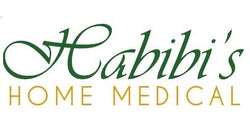In today's fast-paced world, where stress and hectic lifestyles have become the norm, it is vital to prioritize our health and well-being. Monitoring blood pressure regularly is a crucial step in understanding and managing cardiovascular health. While traditional blood pressure measurements were primarily conducted at medical facilities, the advent of home blood pressure monitors has revolutionized healthcare. In this blog post, we will explore the significance and purpose of having a home blood pressure monitor, empowering individuals to take control of their health and promote proactive self-care.
1. Convenience and Accessibility:
One of the key advantages of owning a home blood pressure monitor is the convenience and accessibility it provides. Regular blood pressure measurements are necessary to track changes over time and identify any potential health concerns. With a home monitor, you can take readings at your convenience, avoiding the need for frequent visits to healthcare facilities. This ease of access encourages regular monitoring, ensuring a more comprehensive understanding of your blood pressure patterns.
2. Early Detection and Prevention:
Consistent monitoring with a home blood pressure monitor enables early detection of any deviations from the normal range. Hypertension, often referred to as the "silent killer," is a condition that can go unnoticed for an extended period, leading to severe health consequences. By detecting high blood pressure early, individuals can take preventive measures such as lifestyle modifications, dietary changes, or seeking medical intervention, reducing the risk of complications like heart disease, stroke, or kidney problems.
3. Personalized Health Management:
Home blood pressure monitors empower individuals to actively participate in their health management. By tracking blood pressure readings regularly, individuals gain valuable insights into their unique physiological responses. They can identify patterns, triggers, and factors that influence their blood pressure, such as stress, diet, exercise, or medications. Armed with this information, individuals can make informed decisions about their lifestyle choices, leading to better health outcomes.
4. Monitoring Treatment Efficacy:
For individuals already diagnosed with hypertension or other cardiovascular conditions, home blood pressure monitors serve as invaluable tools for monitoring the effectiveness of treatment plans. Regular readings can help assess how well prescribed medications or lifestyle changes are working, allowing individuals and healthcare professionals to adjust interventions as needed. This proactive approach encourages a partnership between patients and healthcare providers, facilitating optimal management of blood pressure and related conditions.
5. Empowerment and Peace of Mind:
Owning a home blood pressure monitor instills a sense of empowerment and peace of mind. Instead of solely relying on occasional clinic visits, individuals can actively engage in their health journey, promoting a proactive and preventive mindset. Home monitoring encourages a deeper understanding of one's health, fostering a sense of control and reducing anxiety associated with sporadic or unknown blood pressure fluctuations.
The inclusion of a home blood pressure monitor in our healthcare routine is a step towards proactive self-care and improved well-being. These devices offer convenience, early detection, personalized health management, and the ability to monitor treatment efficacy. By taking control of our blood pressure monitoring, we can make informed decisions about our health, work collaboratively with healthcare professionals, and ultimately lead healthier lives. Remember, knowledge is power, and with a home blood pressure monitor, you hold the key to unlocking vital insights into your cardiovascular health.






